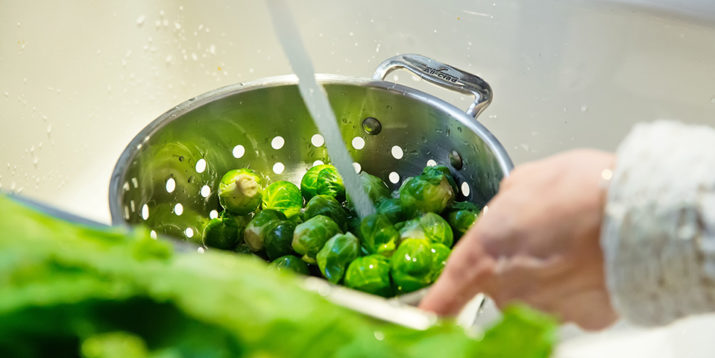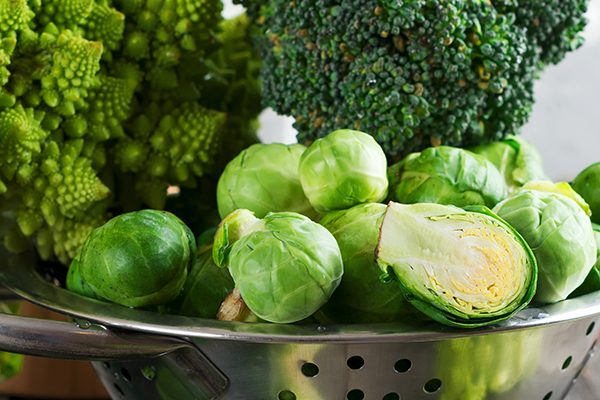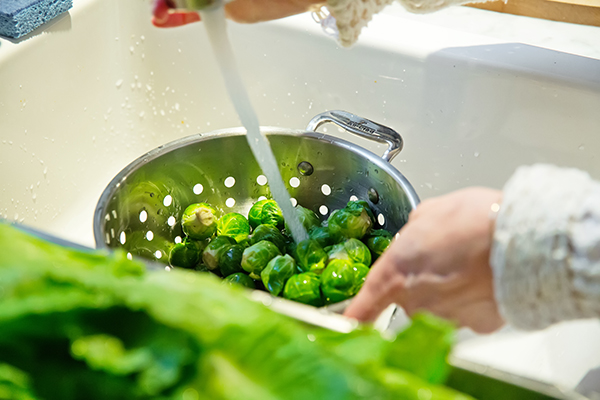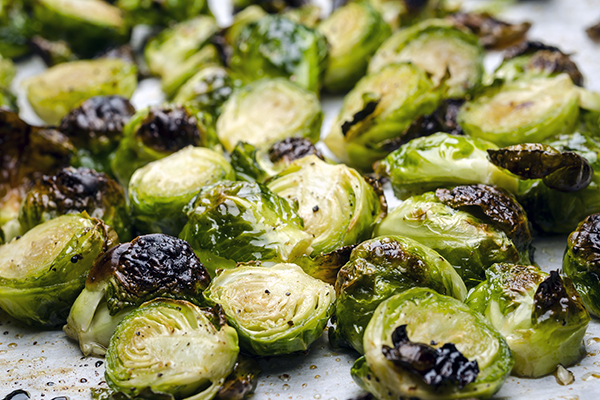4 Reasons to Love Brussels Sprouts

Brussels sprouts may have gotten a bad rap when you were a kid, but don’t let those memories fool you.
These little green vegetables are delicious!
And Brussels sprouts nutrition is no joke; despite their small size, they pack a punch.
Named for the capital of Belgium (where they were first widely cultivated back in the 16th century), they’re a member of the cruciferous family of vegetables.
Other tasty members of this family include broccoli, cauliflower, collard greens, and kale, which is why many of the hallmarks of Brussels sprouts nutrition sound similar to the benefits of those veggies.
Read on for more Brussels sprouts nutrition info, plus tips on how to prepare them.

Brussels Sprouts Nutrition Facts
First up, here’s a look at what’s packed into a one-cup serving of Brussels sprouts.
- 39 calories
- 3 grams of protein
- 8 grams of carbohydrates
- 3 grams of fiber
- 0 grams of fat
But the Brussels sprouts nutrition benefits don’t stop there!
1. Brussels sprouts pack in more nutrition than their full-size relative
Both Brussels sprouts and cabbage boast nutritional benefits — and are similar in taste.
Stacy Roberts-Davis, R.D., L.D.N., of Flavorful Nutrition LLC, says that while they’re both healthy choices, Brussels sprouts do come out ahead in the numbers game.
“Brussels sprouts are higher in nutrients like potassium, folic acid [in the form of folate], magnesium and vitamin A and C,” she explains.

2. Brussels sprouts are excellent sources of vitamins K and C
There are 159 micrograms of vitamin K in one cup of Brussels sprouts, making them an excellent source of this fat-soluble vitamin.
“Vitamin K helps blood clotting” and bone health, explains Roberts-Davis.
There are 77 milligrams of vitamin C found in one cup of Brussels sprouts.
“Vitamin C works as an antioxidant and is essential for immune health,” explains Amy Davis, R.D., L.D.N. Vitamin C also helps iron absorption.
3. Brussels sprouts are rich in phytonutrients and antioxidant-like compounds
Brussels sprouts contain kaempferol, an antioxidant-like compound that may decrease inflammation and promote heart health, Roberts-Davis says.
(Antioxidants decrease and offset oxidative stress to cells.)
In addition, Brussels sprouts contain phytonutrients called glucosinolates, which give cruciferous vegetables their sulfurous odor and bitter taste.
Those compounds have a host of health benefits, including antioxidant-like support for cells.
4. Brussels sprouts are a good source of fiber
Over 3 grams of dietary fiber in one cup of Brussels sprouts make it a good source of this nutrient.
Getting enough fiber helps support gut health, and most of us don’t get enough of this essential, only-found-in-plants nutrient.
The natural sugars in Brussels sprouts can ferment bacteria in the intestines, explains Roberts-Davis, so those with gastrointestinal issues or on a low-fiber diet for some reason might want to put something else on the menu.

How to Cook Brussels Sprouts
One of the best ways to make Brussels sprouts is to roast them in the oven, since this reduces their sulfurous odor and gives them less of a harsh and bitter taste.
If you’re new to Brussels sprouts, this is the best way to cook them if you prefer a milder flavor or are learning to like them. Try this recipe for perfectly blistered Brussels sprouts.
You can also sear or sauté Brussels sprouts for a crispier texture, or you can steam them to keep them tender.
Love that pungent flavor? Eat Brussels sprouts raw.
You can shred or grate them and add to your favorite salad. Try massaging them like you would kale — pair Brussels sprouts with this Lemon Dijon Salad Dressing.
Get more ideas on how to cook Brussels sprouts here.
Want more expert nutrition tips and advice? Head over to BODNutrition.com to learn how Beachbody nutrition programs and products can help you lead a healthier lifestyle.
